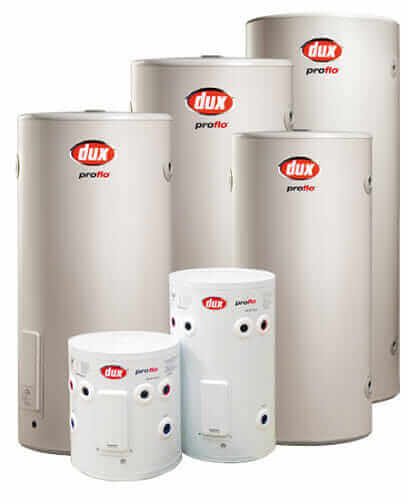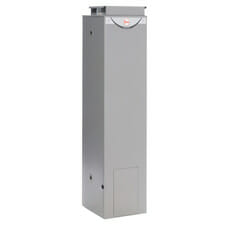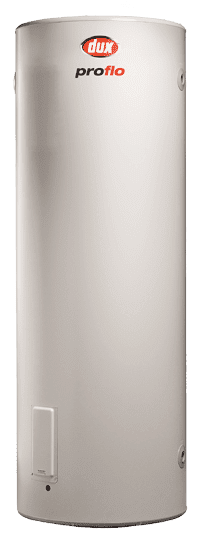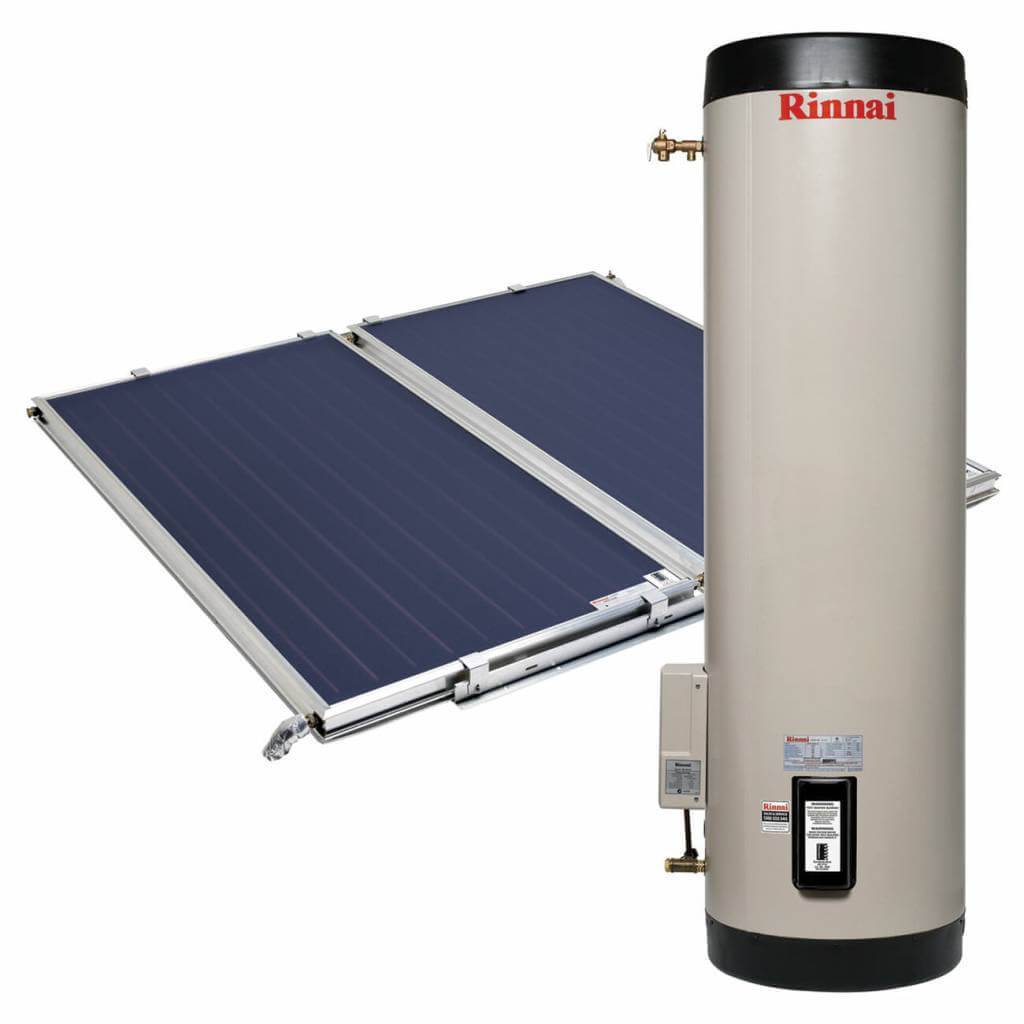Hot water systems are essential to any Australian home, providing convenience and comfort for everyday life. But with a range of options available, it can be challenging to determine the best fit for your household.
Choosing the right hot water system can significantly impact your budget, with installation costs and ongoing maintenance expenses being major factors in your decision. We’ll cover everything you need to pick the best hot water system for your home, from installation costs to the advantages and disadvantages of every system type.
There are several types of hot water systems: gas, electric, solar power, continuous flow, storage tank, and heat pump. Each type of system has its own unique features and benefits, so it’s important to consider your household’s typical hot water usage carefully.
Continuous Flow vs. Storage Tanks vs. Heat Pump Systems
A continuous flow system, also known as a tankless or instantaneous system, heats water as it flows through the system to deliver hot water on demand. These systems have a higher upfront cost than storage tank systems but are typically more energy efficient and take up less space.
Storage tank systems, on the other hand, store and preheat a finite amount of water in a tank and deliver hot water when it’s needed. They’re the traditional type of hot water system and are generally less expensive to install than continuous flow systems. However, they can be less energy efficient and take up more space due to the size of the storage tank.
Finally, heat pump systems typically use electric split systems to move heat from the air outside the unit to heat water within it. Split systems refer to a type of heat pump hot water system where the storage tank and the heat pump unit are separated from each other. Split systems are usually quieter and require less maintenance than other systems.
Heat pumps are typically more energy efficient than electric or gas systems, as they don’t need to generate heat themselves but instead move heat from the air outside. They can be more expensive to purchase and install compared to some other systems, but their energy efficiency can lead to long-term cost savings on energy bills.

Gas Hot Water System Costs
A gas hot water system uses natural gas or LPG (Liquefied Petroleum Gas) to heat the water, making them a popular choice due to being energy efficient and having relatively low running costs.
Pros
- Cost-effective: Gas hot water systems are generally more cost-effective than electric systems, as natural gas is typically cheaper to access than adding more costs to your electricity bills.
- Reliable: These systems typically have a longer lifespan and are more reliable in cold weather compared to electric systems. This is because gas systems can maintain consistent hot water temperatures even in colder climates.
- Fast heating: A gas system can heat water quickly, which means you won’t have to wait long for your outlets to supply hot water.
Cons
- Greenhouse gas emissions: Gas hot water systems produce greenhouse gas emissions, as gas isn’t a very environmentally-friendly energy source. If you want an eco-friendly alternative, we recommend that you stay away from gas models and choose a solar hot water system instead.
- Limited supply: Storage tank systems can run out of hot water if the tank is emptied, and continuous flow systems may not be able to keep up with high demand if your hot water usage is particularly heavy.
- Installation cost and requirements: A gas hot water system will require a professional installation, gas lines, and may need a ventilation system. All of this can add to the installation cost.

Installation Costs
Current market trends indicate that a gas hot water system will generally cost anywhere between $700-$1,900.
It’s important to note that the true installation cost will change based on the brand and type of system you choose. This is because the installation process, design and layout, and features of your new hot water system will vary from option to option.
Ongoing Maintenance & Utility Costs
Based on data from 2022, your estimated annual energy cost with a gas hot water system is $295-$665. Keep in mind that this will more than likely fluctuate from year to year, depending on a number of elements.
As for the maintenance costs, that will depend on various factors, such as the age and condition of the system and the frequency of servicing. Regular maintenance is essential to ensure that your system operates both efficiently and safely.
Summary
While gas hot water systems can be more expensive to install than electric systems, they can be more cost-effective in the long run due to their lower running costs. They also provide hot water even during power outages, making them a reliable option.
However, it’s important to note that gas hot water systems require a larger gas connection depending on the system size, which can add to the installation cost.
Electric Hot Water System Costs
An electric hot water system uses an electric element inside a tank to heat the water to the desired temperature. When hot water is needed, it is drawn from the top of the tank and replaced with cold water from the bottom. The electric element then kicks in to heat the new water to the set temperature.
Pros
- Lower installation cost: Electric hot water systems are typically less expensive to purchase and install when compared to a gas or solar system.
- Easy installation: An electric hot water system does not require any gas lines, making them easy to install and ideal for units or homes without a gas connection.
- Energy efficient: These systems are highly energy efficient, with some models even achieving a 5-star energy rating.
Cons
- Higher ongoing costs: While an electric hot water system may have lower upfront costs, it can be more expensive to operate over time due to the higher cost of electricity compared to gas.
- Limited hot water supply: Electric hot water systems have a limited amount of hot water available, so larger households may run out of their hot water supply quickly.
- Long heating times: An electric hot water system can take longer to heat up than a gas hot water system, meaning you may have to wait longer for hot water to be available.

Installation Costs
Based on the latest market research, an electric hot water system generally costs anywhere between $450-$1,800 to purchase and install.
As mentioned earlier, it’s important to note that the true installation cost will change based on the brand and type of system you choose. This is because the process of installation, design, layout, and features of your new hot water system will vary from model to model.
Ongoing Maintenance Costs
Based on 2022 data, your estimated annual energy cost with an electric hot water system would be $700-$925. Of course, this number could be higher or lower depending on your typical water usage.
As previously mentioned, maintenance costs will depend on various factors, such as the age and condition of the system and the frequency of servicing. Regular maintenance is critical for ensuring that your system operates both safely and efficiently.
It’s important to keep in mind that regular servicing can extend the lifespan of the system and prevent costly repairs down the line.
Summary
Electric hot water systems are generally cheaper to install compared to gas systems and can be a good option for homes that don’t have access to natural gas.
However, electric systems can be more expensive to run over the long term due to the higher cost of electricity compared to natural gas.
Solar Hot Water System Costs
Solar hot water systems use solar collectors, typically solar panels on roof mounted systems, to heat and store water. The solar collectors are usually made up of a series of tubes that contain water, which is heated by the sun’s energy as it passes through the tubes. The heated water is then stored in a tank until it’s needed, at which point it’s pumped through the house.
There are two main types of solar hot water systems: passive and active. Passive systems rely on gravity to circulate the water, while an active solar hot water system uses pumps to move the water. Both types can be configured as either storage tank or continuous flow systems.
In areas with limited sunlight or during times of high demand, backup heating systems — such as gas or electric — can be used to ensure a reliable supply of hot water.
Pros
- Renewable energy: Solar hot water systems use energy from the sun, making them an incredibly environmentally friendly option.
- Energy cost savings: Using the sun’s energy to heat water can lead to significant cost savings on energy bills over time, particularly for households that use a lot of hot water.
- Government incentives: There are government incentives available to encourage the installation of your own solar hot water system.
Cons
- High upfront costs: The initial investment required to purchase and install a solar hot water system can be quite high compared to gas and electric systems, which may be a barrier for some households.
- Dependent on weather: The efficiency of solar systems can be affected by weather conditions, with less sunlight leading to less hot water being produced.
- Backup systems: In the event of extended cloudy or rainy periods, a backup system may be required to ensure a consistent supply of hot water.

Installation Costs
Based on current market trends, the installation cost of a solar hot water system will typically cost between $3,00-$7,000. This makes them the most expensive of the three options.
As with all hot water systems, it’s important to note that the true installation cost will change based on the brand and type of system you choose. This is because the installation process, design and layout, and features of your new hot water system will vary from option to option.
Ongoing Maintenance Costs
Based on data from 2022, your estimated annual energy cost with a solar power system is $65-$365. While the installation cost may be high, the long-term costs are much lower compared to an electric or gas hot water system.
The maintenance costs will depend on various factors, such as the age and condition of the system and the frequency of servicing. Regular maintenance is essential to ensure that your system operates both efficiently and safely.
Summary
While the upfront cost of a solar-powered system can be much higher than other systems, they can provide significant long-term savings through reduced energy bills.
The true cost-effectiveness of your solar hot water system will depend on factors such as the climate, the size of the system installed, and the household’s hot water usage.
Choosing The Best Hot Water System For You
When replacing your existing hot water system or choosing a brand new one, it’s essential to consider both the upfront and long-term costs associated with your preferred system.
An electric system is often the most affordable option for those looking to minimise upfront costs. However, they can be more expensive to run over time.
Gas systems are a good middle-ground option regarding the installation cost and ongoing expenses.
Solar systems have a higher upfront cost but can save significant money on energy expenses in the long run, making them a smart investment for those planning to stay in their home for decades to come.
We highly recommend connecting with experienced hot water system specialists to accurately calculate the estimated long-term cost of each system.